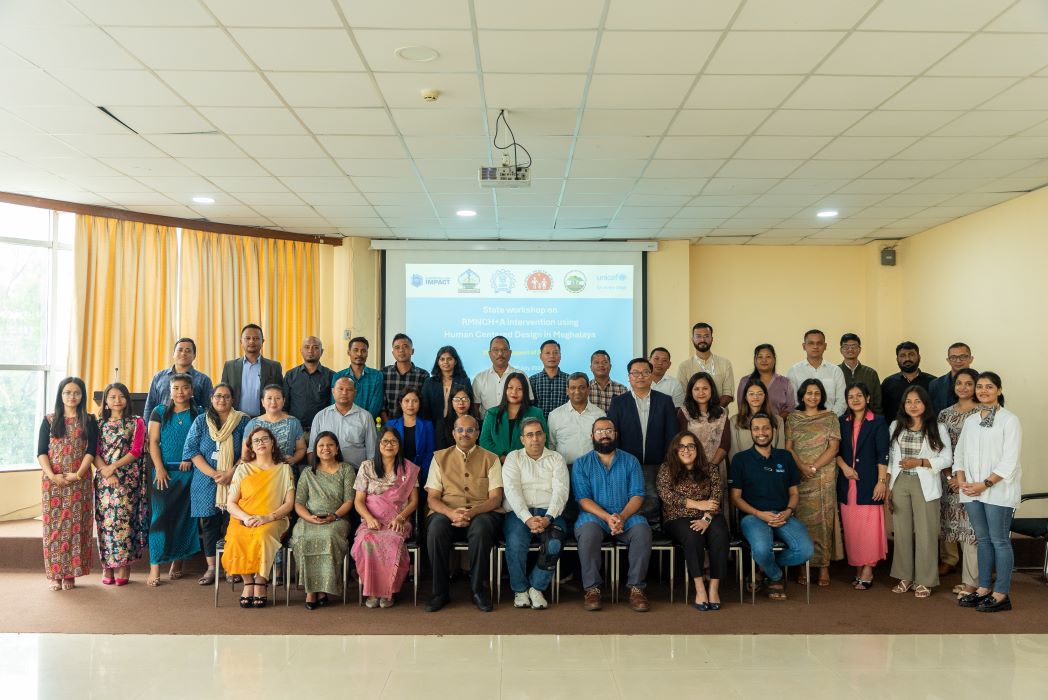Shillong, July 20, 2024: The Government of Meghalaya, in collaboration with UNICEF, Blockchain for Impact (BFI) and IIT Mumbai co-hosted a state workshop on Human Centred Design (HCD). The event marks the beginning of a fellowship programme that focuses on the deployment of social design fellows for public problem solving in public health at the district level.
This approach aligns with UNICEF and Blockchain For Impact's (BFI) programme The India Health and Climate Resiliance Fellowship (IHCRF)’s focus on developing local sustainable solutions under the aegis of the State government. IHCRF looks to build primary health care using HCD featuring data, innovation and multi- sectoral approaches to ensure equity, efficiency to augment health systems.
The workshop included training District Health Associates (DHAs) posted in all the districts of Meghalaya. The training of the DHAs at today’s event focussed on the basics of health systems, data systems, multi sectoral programming and data analytics from the point of view of Government of Meghalaya’s health priorities. Over the course of this partnership, the capacity of the DHAs will be further built on aspects of HCD and problem solving for public health at the district level.
Ram Kumar, MD, NHM and Secretary, Health and Family Welfare, representing the Health Department of the Government of Meghalaya, emphasized the importance of this initiative. “State capacity is essential to enable our people to be fully productive. The HCD approach will empower our fellows to design and implement strategies that are tailored to the unique needs of our communities, addressing critical issues in health, nutrition, and rural development,”, he said.
He also emphasised the role of the fellows in impacting the broader social determinants of health including rural development, the environment and intersectional aspects such as the socio-economic status of the community.
Nagakarthik, VP, Blockchain For Impact, highlighted the transformative potential of this initiative. “By integrating human-centered design with cutting-edge technologies, we can create sustainable health solutions that are both effective and scalable. This fellowship program is a pivotal step towards achieving that vision and we look forward to working with the system towards enabling it,” he said.
Teams from NHM, UNICEF and SHSRC also shared various data sets to help the DHAs understand gaps on the ground and priority areas that are of focus for the state of Meghalaya.
Luigi D'Aquino, Chief of Health, UNICEF, India, said, “UNICEF is proud to support the Meghalaya government in this groundbreaking endeavour. The program is a testament to the power of partnership in driving positive change. We are confident that the HCD approach will lead to innovative solutions that will significantly improve public health outcomes in Meghalaya.”




















.jpg)



